Circular airborne detector searching for minerals in Cornwall
- Published
Watch how an inflatable detector carried by a helicopter is gathering data to find new mineral deposits in Cornwall
A helicopter carrying a large circular detector has been flying across Cornwall in a bid to discover unknown mineral deposits underground.
The 66ft (20m) wide inflatable electromagnetic detector has gathered data while flying at 131ft (40m).
Data gathered was being used to help make 3D maps, project managers said.
It was hoped the use of the "bird", as it is called in the industry, would be more efficient than digging exploratory holes to find minerals, they added.
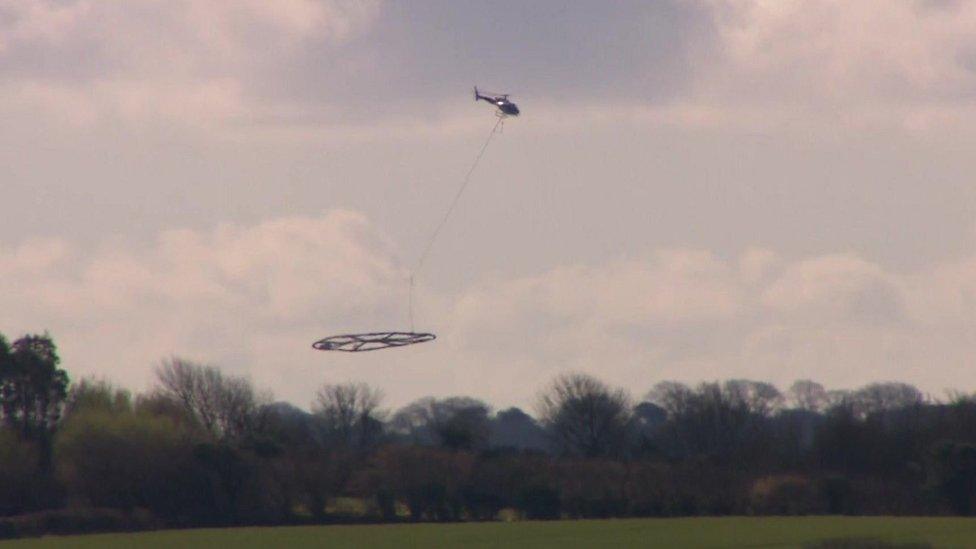
The electromagnetic detector has being flying around parts of Cornwall at a height of 131ft
The sensor has been brought from South Africa and has been focusing on two areas in mid and east Cornwall this week.
The survey is being carried out by Deep Digital Cornwall (DDC), with funding from the European Union.
Listen: Electromagnetic detector flies over Cornwall
Frances Wall, principal investigator for DDC, said: "We can't see what's underground, but ... [this] can pick up electromagnetic signals.
"We can search for hidden mineral veins, as well as hidden fractures that might be useful for geothermal energy, and lithium exploration, as well."
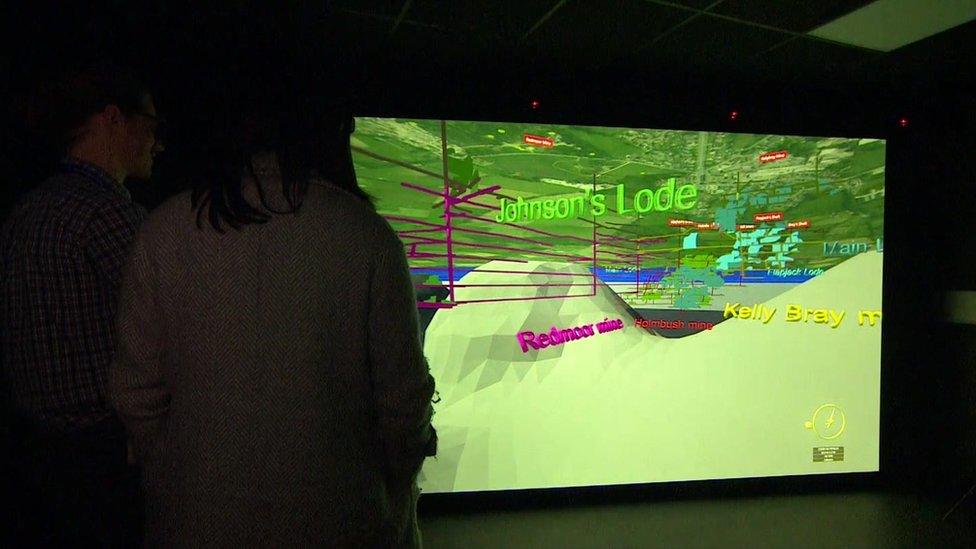
The data from the survey will be added to 3D maps being compiled
She added it was hoped the work would find seams of minerals that prospectors did not discover during Cornwall's former involvement in the global mining industry.
The data will be analysed by geophysicists and added to digital maps being put together by also using old mine plans.
If the survey worked well, the team said members would be asking for UK government to use the device in Cornish skies again to gather more detailed information.

Follow BBC News South West on Twitter, external, Facebook, external and Instagram, external. Send your story ideas to spotlight@bbc.co.uk, external.
- Published1 March 2023
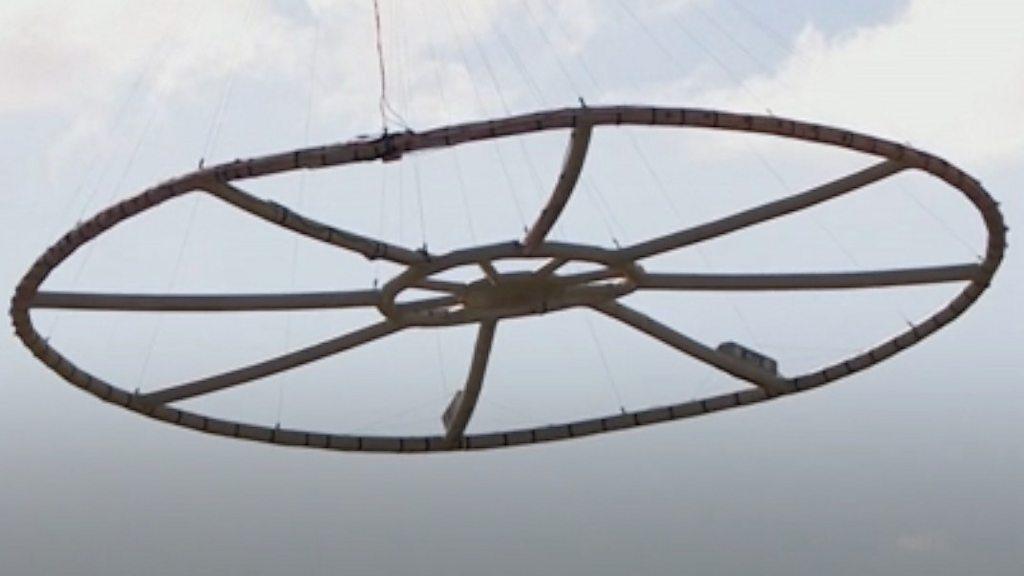
- Published11 June 2021
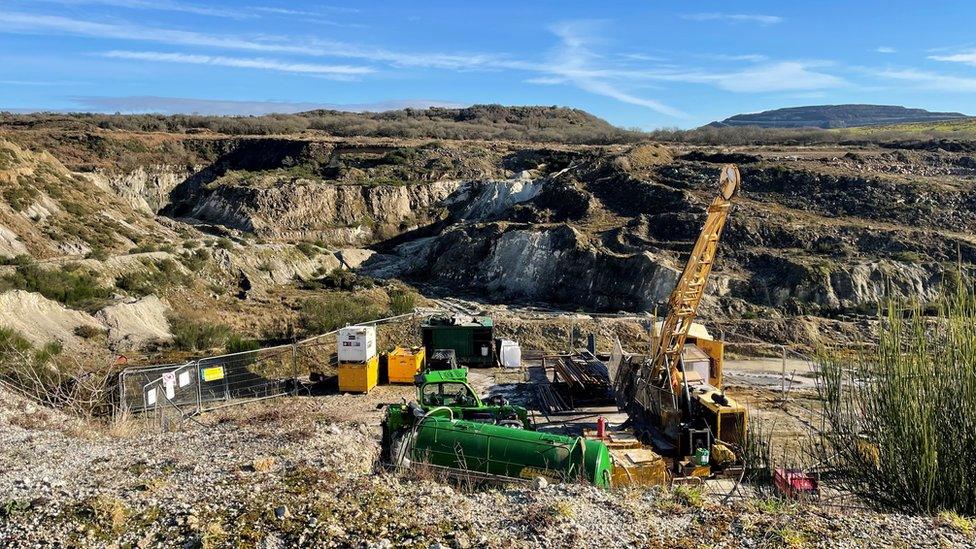
- Published2 July 2021
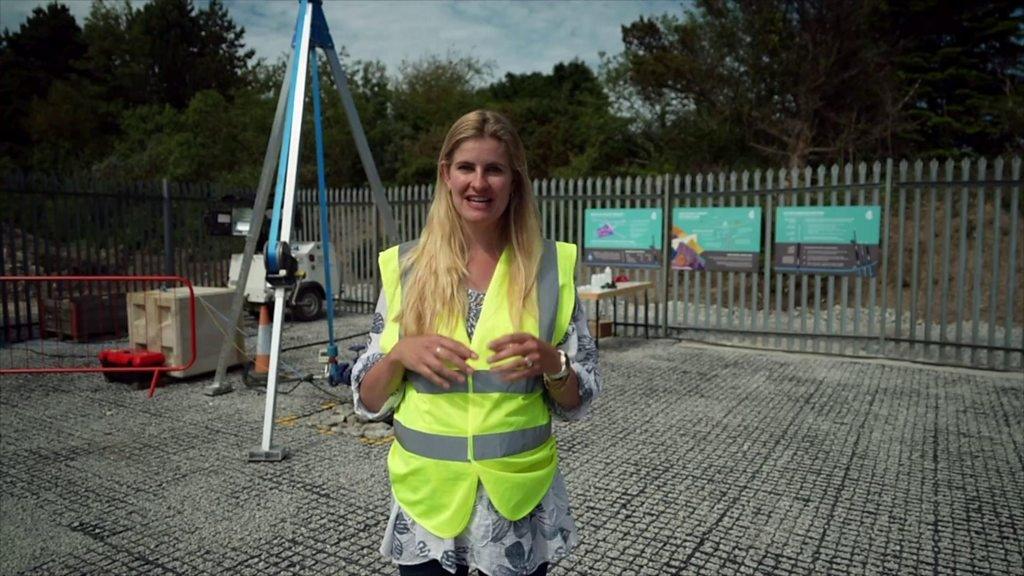
- Published22 March 2022
